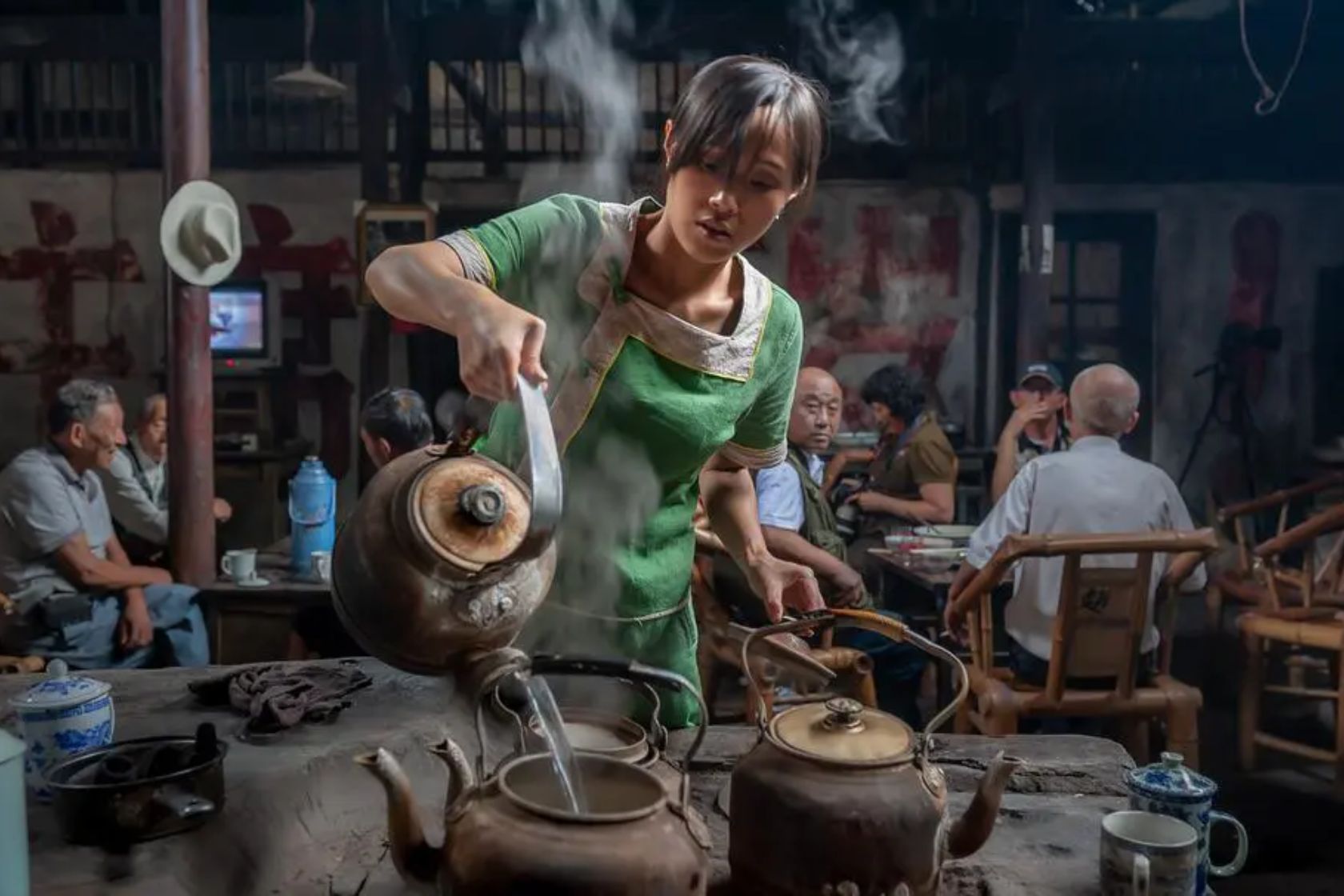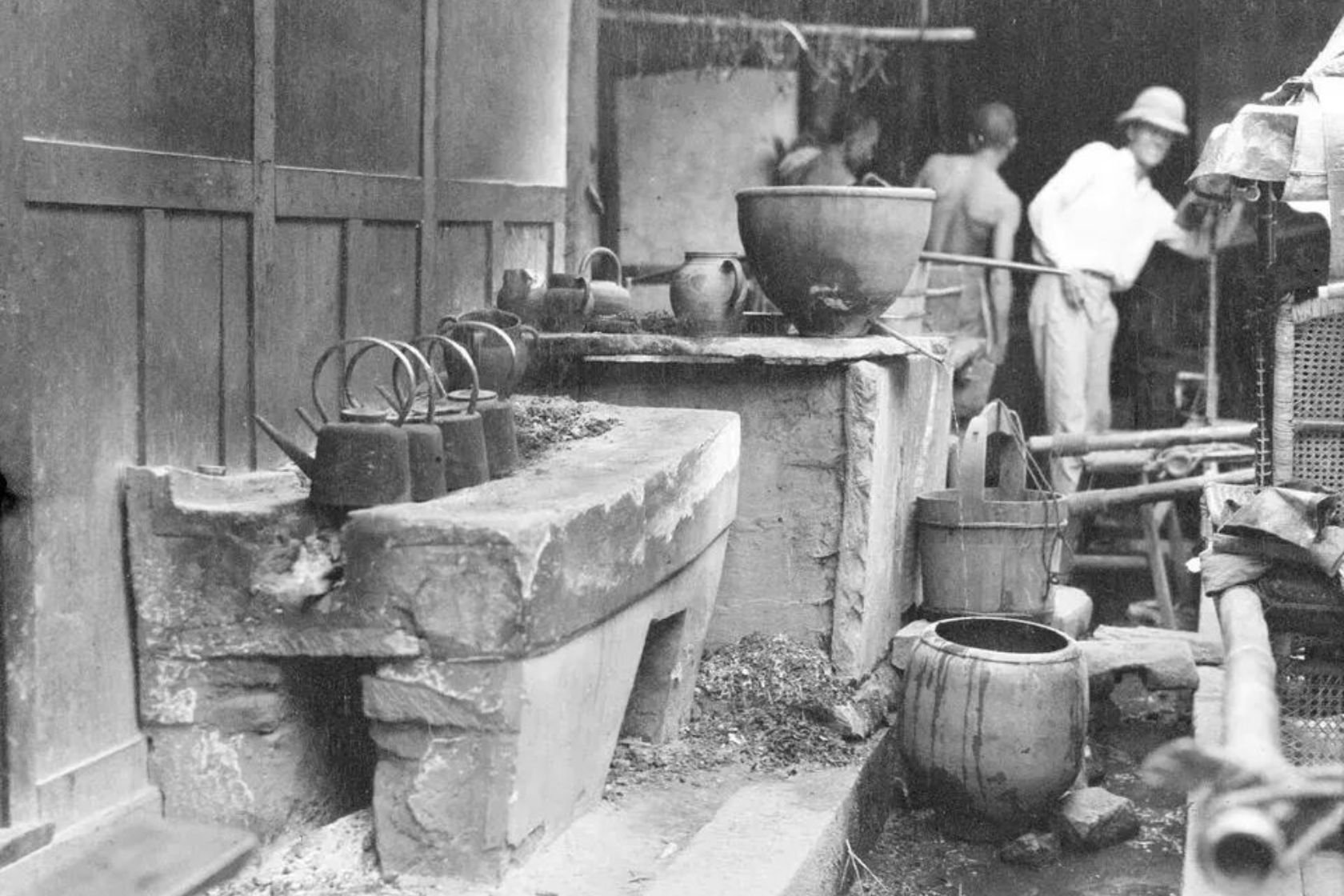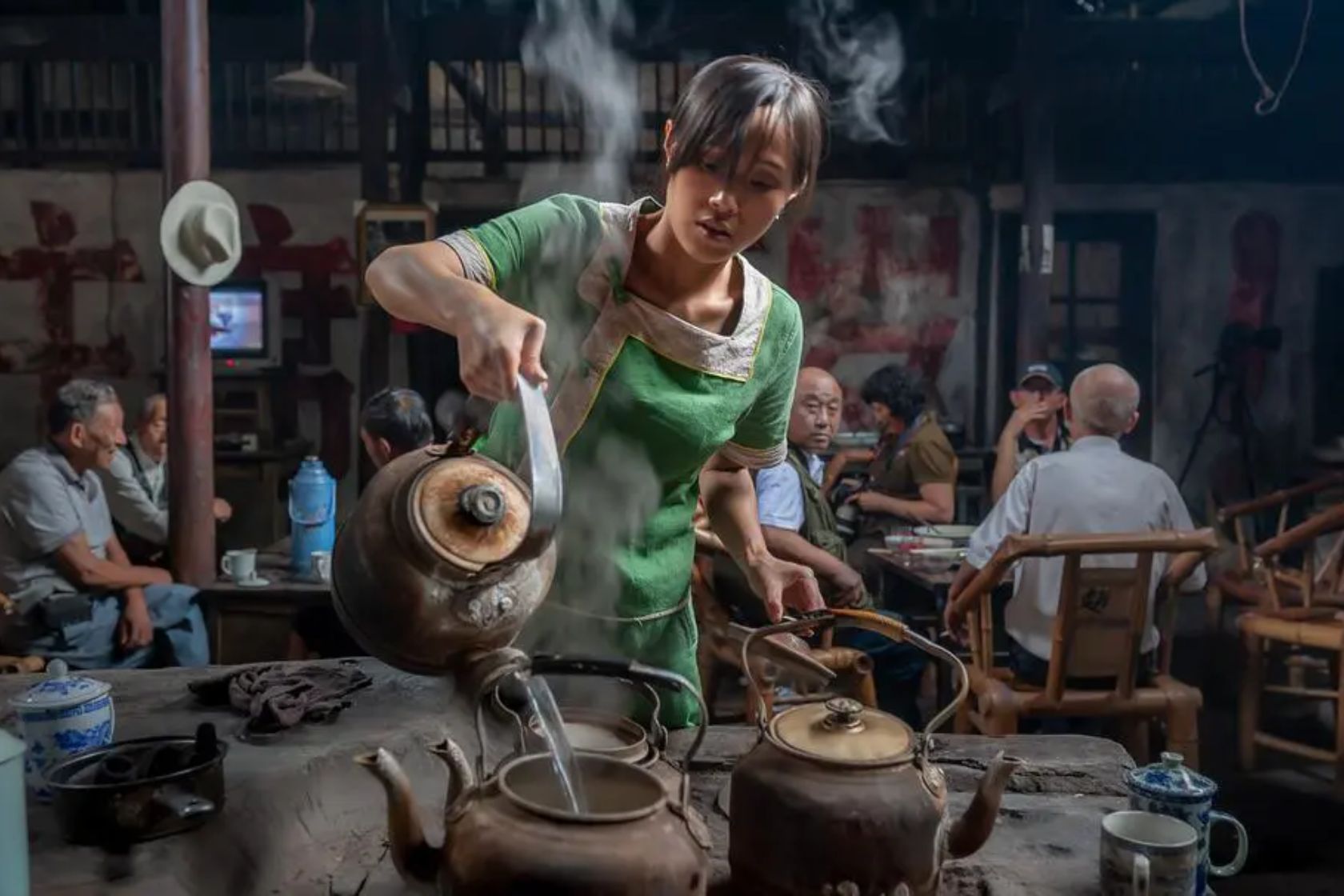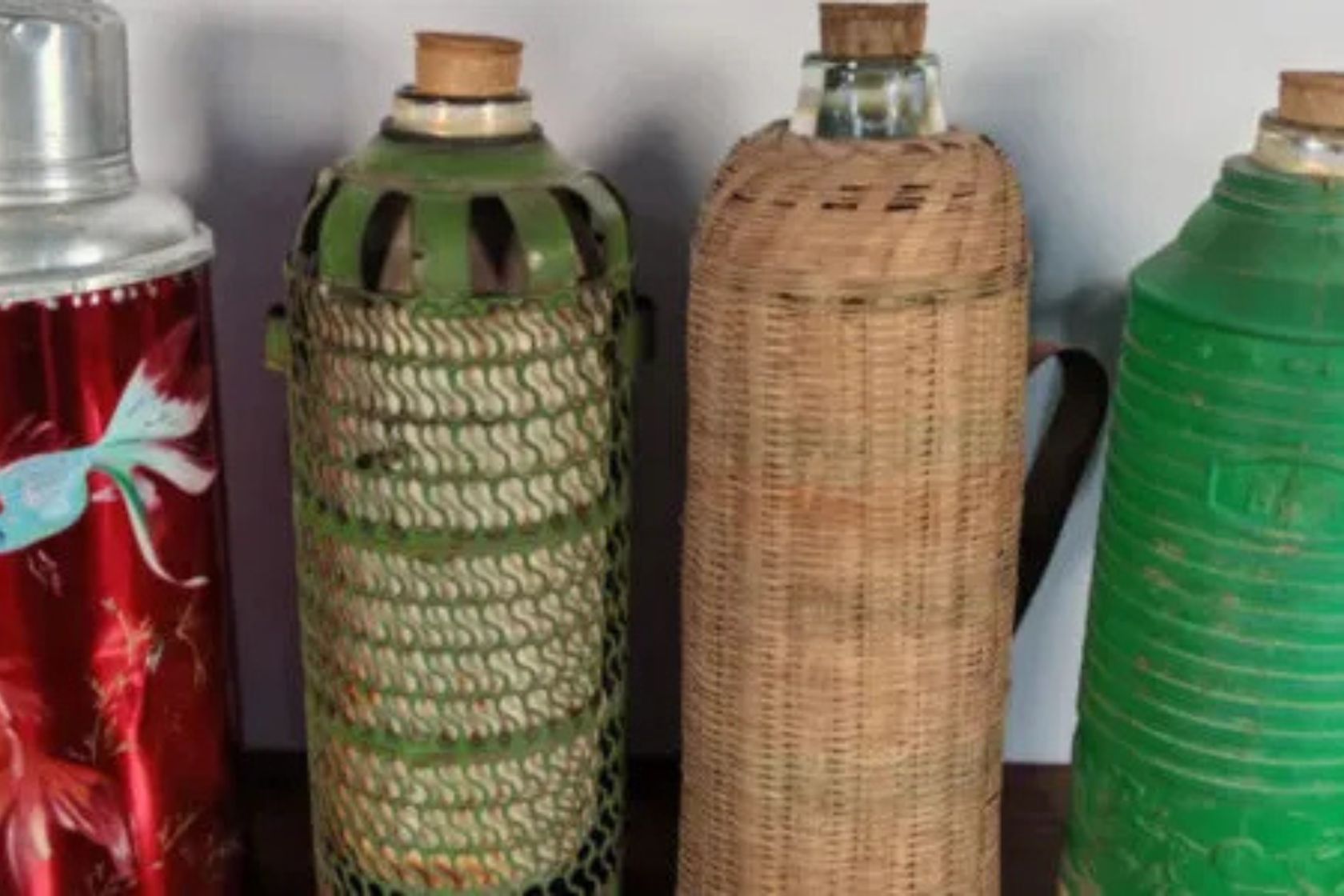Drink More Hot Water

From childhood, every Chinese person remembers that when feeling unwell or sick, family and friends would constantly remind them: "Drink more hot water!" (duō hē rè shuǐ) If you're new to China, try saying this phrase to your Chinese friends; you'll find that it's like you've unintentionally unlocked a secret code in their hearts, instantly bringing you closer together! They might even praise you: "Wow, you've even learned this!" This Chinese-style expression of care has become a shared understanding among the people. Drinking hot water isn't just a simple gesture of concern; it's a practice that has been validated over thousands of years through historical development and cultural transmission. As the saying goes, "Great truths are often simple."
Drinking hot water isn't just a simple gesture of concern; it's a practice that has been validated over thousands of years through historical development and cultural transmission. As the saying goes, "Great truths are often simple."
Archaeologists have detected water residue in Bronze Age tombs from 3,000 years ago. King Wu Ding of the Shang Dynasty, to treat his beloved consort's "cold syndrome," ordered shamans to repeatedly boil mountain spring water in bronze vessels. This might be China's earliest form of "hot water therapy." The "Rites of Zhou" records that the Zhou royal court had officials dedicated to managing hot water supplies, whose status was comparable to today's Minister of Health.
In 1934, on the streets of Nanchang, young students in Zhongshan suits held banners promoting the "New Life Movement," explaining door-to-door the slogan "Drink boiled water to prevent diseases." This hygiene campaign, printed in textbooks of the Republic of China era, escalated into a nationwide movement during the Patriotic Health Campaign in 1952. Back then, every workplace had a boiler room, with red thermos flasks labeled 'Caution: Hot.' Today's smart water dispensers on high-speed trains are the technological evolution of that collective memory. In Chinese culture, drinking hot water is more than just a daily habit; it's considered a universal remedy for various situations. Starting the day with warm water on an empty stomach can awaken the body, activate organ functions, promote gastrointestinal movement, clear metabolic waste, and enhance skin radiance. When catching a cold, it's common for parents or friends to advise, "Drink more hot water," as it helps soothe throat discomfort, induce sweating to dispel cold, and speed up recovery. Hot water can also relax stomach muscles, alleviating bloating or indigestion symptoms. During seasonal transitions, when the body is prone to fatigue or decreased immunity, drinking hot water can enhance physical fitness and prevent illnesses. For women, consuming more hot water during menstruation can relieve abdominal discomfort, improve blood circulation and reduce menstrual pain.
In Chinese culture, drinking hot water is more than just a daily habit; it's considered a universal remedy for various situations. Starting the day with warm water on an empty stomach can awaken the body, activate organ functions, promote gastrointestinal movement, clear metabolic waste, and enhance skin radiance. When catching a cold, it's common for parents or friends to advise, "Drink more hot water," as it helps soothe throat discomfort, induce sweating to dispel cold, and speed up recovery. Hot water can also relax stomach muscles, alleviating bloating or indigestion symptoms. During seasonal transitions, when the body is prone to fatigue or decreased immunity, drinking hot water can enhance physical fitness and prevent illnesses. For women, consuming more hot water during menstruation can relieve abdominal discomfort, improve blood circulation and reduce menstrual pain. Interestingly, in Switzerland, due to the rich and hard-to-digest nature of cheese fondue, people often pair it with a cup of hot tea. The hot tea aids in stomach digestion and prevents food from lingering too long in the body. This mirrors the Chinese wisdom of drinking hot water to promote digestion.
Interestingly, in Switzerland, due to the rich and hard-to-digest nature of cheese fondue, people often pair it with a cup of hot tea. The hot tea aids in stomach digestion and prevents food from lingering too long in the body. This mirrors the Chinese wisdom of drinking hot water to promote digestion.
In Hangzhou's Hu Qing Yu Tang Chinese medicine clinic, 78-year-old Dr. Li is taking the pulse of a German exchange student: "You Westerners focus on supplementing vitamins; we Easterners believe in balancing yin and yang." He points to the clinic's 24 solar terms drinking guide: drinking jasmine tea during the Beginning of Spring to raise yang energy, chrysanthemum tea during Major Heat to clear the heart and reduce heat, and simmering red dates and longan tea during the Winter Solstice to warm and nourish yang energy. This wisdom of connecting hot water with the rhythms of nature amazes Swiss nutritionists: "Chinese people have integrated the seasonal philosophy of agrarian civilization into their DNA through drinking water." Traditional Chinese medicine emphasizes "health preservation in daily life," and drinking hot water embodies this concept: maintaining health through small, consistent actions rather than relying on external medical interventions. Chinese health philosophy extends beyond drinking hot water, emphasizing the wisdom of aligning with nature and balancing life. This includes nourishing soups tailored to different seasons, foot baths with hot water to improve sleep and relax the body, and herbal hot compresses to relieve muscle soreness or improve blood circulation.
Chinese health philosophy extends beyond drinking hot water, emphasizing the wisdom of aligning with nature and balancing life. This includes nourishing soups tailored to different seasons, foot baths with hot water to improve sleep and relax the body, and herbal hot compresses to relieve muscle soreness or improve blood circulation.
Drinking more hot water, though seemingly simple, embodies rich health philosophies and life wisdom, deeply reflecting the Chinese culture's focus on physical health and the conveyance of daily care. From history to traditional Chinese medicine theories, from practical applications to modern scientific validation, drinking hot water has become an essential part of Chinese health philosophy.